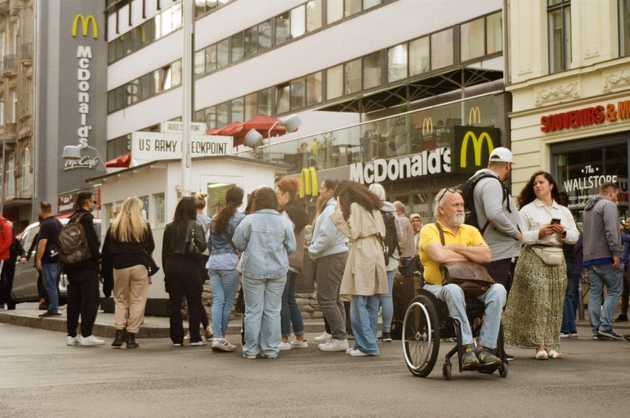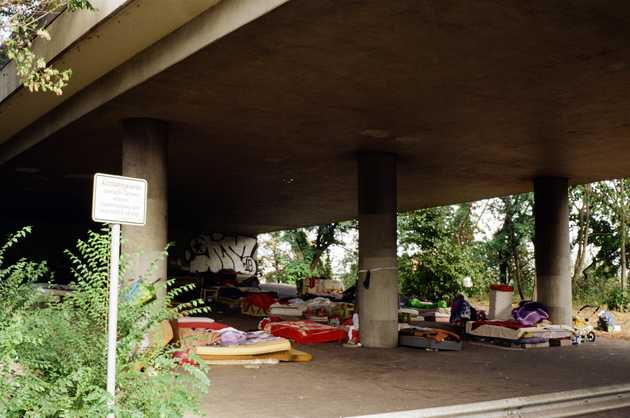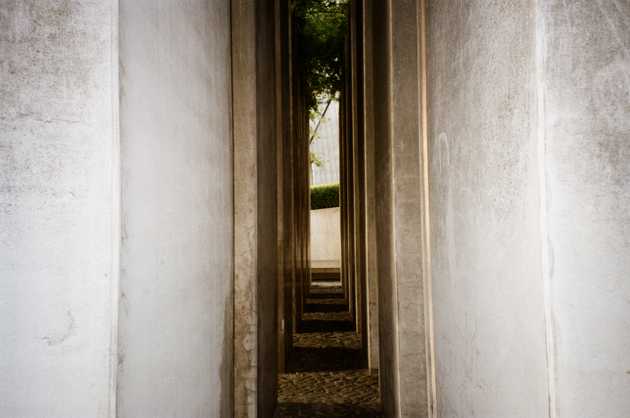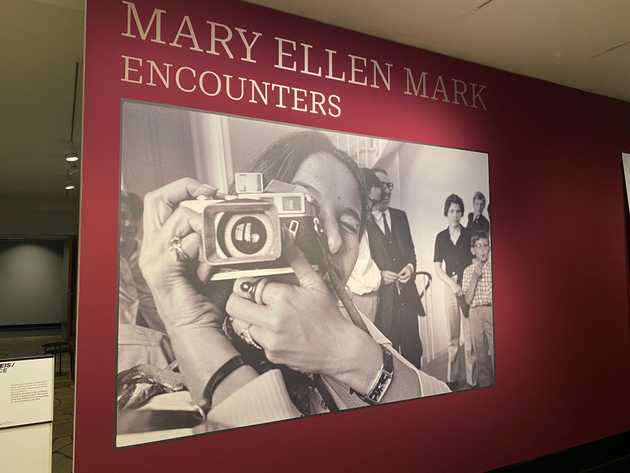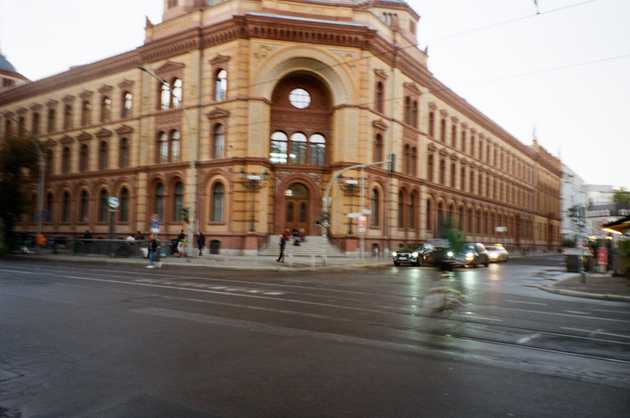Last year, I had the opportunity to travel to Europe for the first time. During my trip, I spent about a month exploring the continent and stayed in three different cities: Paris, Berlin, and London. Inspired by Paul Graham's Cities and Ambition, I made a conscious effort to jot down my first impressions of each city, trying to guess the unique message that each one was trying to convey to me. This second note is about Berlin. I've also noted my preferred way to travel and how you should interpret my opinions on these cities in my first note about Paris.
Berlin: International young hippie gathering.
Below is a log of my first impressions of Berlin, along with some photos I took with Fuji C200, and iPhone.
Berlin has a vibe that feels like a big international young hippie gathering.
There are so many good coffee shops where you can work comfortably. Additionally, this city gives me the impression that it would be easy to survive here as a foreigner if I need to move and live here for a year because most of the essential things 1 are easily accessible and English is widely spoken.
Sometimes in Berlin, it can just start pouring out of nowhere, just like it does in Taipei (or maybe I just miss Taipei too much to be drawing this parallel).
While using my "off-by-two" method2 to explore new places randomly, I suddenly stumbled upon an unknown area with no tourists. There, I saw some beds under a kind of sketchy bridge, and for a moment, I was like, "What if zombies pop out and start chasing me?"
I had a conversation with a random Berliner I met in a ramen shop. We talked about various geopolitical issues, such as the tension between Taiwan and China, Ukraine and Russia's situation, and the dilemma of accepting immigrants and refugees in Germany. He also recommended some of his favorite local spots in Berlin, and one of them was Savignyplatz.
Savignyplatz is a lovely neighborhood that is perfect for wandering around. Walking from the Lietzenseepark towards Savignyplatz, you'll find lots of cute bookstores to check out, some even tucked under the train bridge.
Partying with friends in Berlin's techno scene is such a fun yet exhausting way to experience Berlin. Also, thank you, Resident Advisor.
Arab food and Kebab are surprisingly great. I feel like California and New York City are missing out on these delicious cuisine options (or I just haven't gone to a great one yet. Please recommend!).
In general, there are plenty of cool indie bookstores to discover throughout Berlin.
Visited some intriguing photography exhibitions in C/O Berlin. I absolutely love Mary Ellen Mark's work. Neue Nationalgalerie is fun to walk around if you like modern art. The Jewish Museum is tranquilly beautiful. The Jacob-und-Wilhelm-Grimm-Zentrum is also worth checking out. However, the German Museum of Technology was not as fun as I had hoped.
There are quite a few Comebuy stores in Berlin.
I attended an AI developer meetup in Berlin. The lags between San Francisco and Berlin regarding AI trends are easily noticeable. It seems like the AI projects that people in Berlin are currently working on or interested in were what people in SF were working on three months ago. Similar to the situation in Paris, the number of software people here probably has not reached critical mass because the focus of the industry is just different.
That said, the designs of their websites are usually quite impressive and aesthetically pleasing. And interestingly, more people in Berlin are working on blockchain technology than AI.
The Boros Foundation, aka the bunker, is a unique place to visit as it houses some fascinating artworks. The building itself is an intriguing structure as the Nazis built the bunker above ground instead of underground just to signal that they were so powerful that they didn't need to hide.
The public toilets in Berlin (and probably in many cities in Europe) accept credit card payments and have automatic doors like a subway entrance.
St Christopher Berlin is a fantastic, clean, well-organized, and affordable hostel located in a great area.
The Berlin city walk is a chill way to explore the city while learning its history, though it could be more enjoyable with a smaller group. Biking aimlessly around Berlin on a sunny afternoon is also absolutely delightful.
When people say that "this city has a lot of cultures", what exactly do they mean? I have heard this statement multiple times when I mentioned that I'm traveling from the Bay Area. People usually say something like, "We may not be as focused on tech as San Francisco, but we have a lot of cultures." This makes me start pondering on some questions:
- What does it mean when we refer to a city as "cultural"?
- Does it refer to artistic and intellectual activities, or to a rich history?
- What makes a city's history "rich"?
- What qualities make things like art, architecture, cuisine, fashion, and literature more "cultural" than others?
- Will people consider Taipei or New York City a cultural city?
Thanks to Varun, Tiger, Til, Sam, Yue Han, Eric, Wayne, and anyone whom I met in Berlin or who has given me recommendations!
-
^
To be honest, the most important thing for me to live in a city is probably just having cozy coffee shops where I can work comfortably every day.
-
^
From First Impressions of Paris, whenever I have a particular destination in mind, I oftentimes get off two stops before or after my intended destination intentionally. This way, I can explore more random places along the way. Some of my most cherished memories from my travels have been discovered through this "off-by-two-stops" method.

